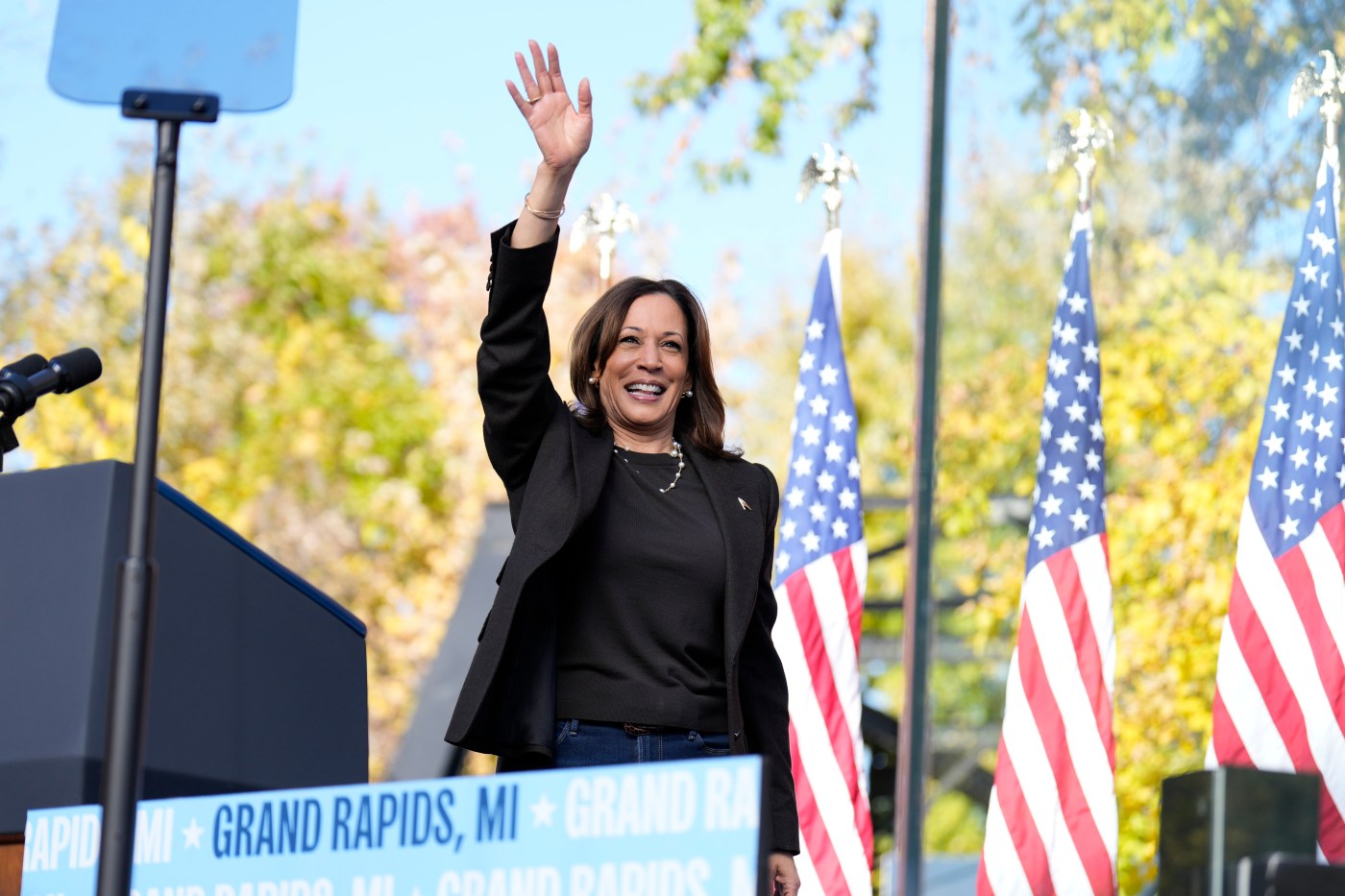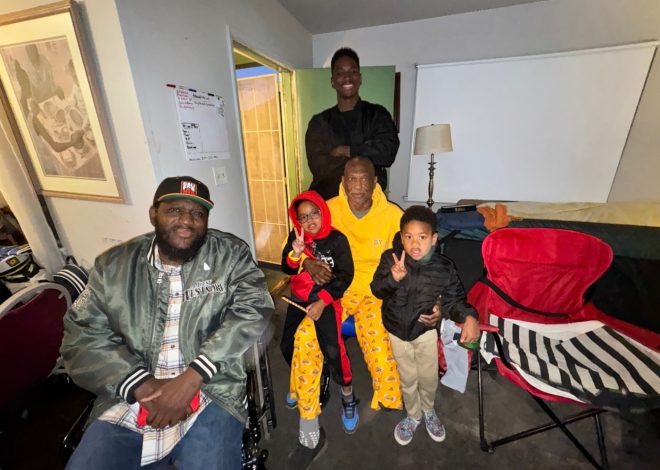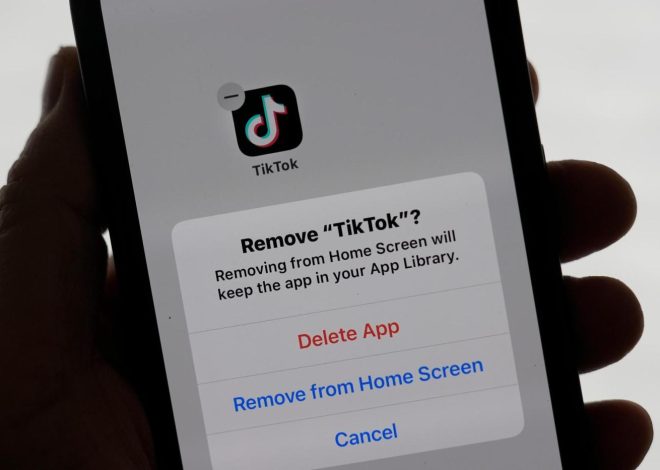
Why Gender May Be the Defining Issue of the Election
With less than two weeks left before Election Day, a big question is looming over the campaign for the White House, and it has nothing to do with the economy or the barrage of attacks between former President Donald Trump and Vice President Kamala Harris over judgment, character and mental fitness.
It is gender.
The issue is rarely directly addressed by either of the candidates. Yet the matter of Harris’ gender — and her potential to make history as the country’s first female president — is defining the campaign, creating a contest that is, in ways overt and subtle, a referendum on the role of women in American life.
Pro-Harris stickers plastered on bathroom stalls offer reminders, “woman to woman,” that their vote is private. Trump aides use sexualized epithets to deride liberal men as weak and effeminate. In poll after poll, a difference in voting patterns based on gender pervades every demographic group.
And in quiet conversations, some female Harris supporters can’t shake the uneasy feeling that men in their lives are struggling to support a woman — especially a Black and South Asian woman — even if they don’t want to admit it.
“If she were a man, would this race be this close?” Gov. Janet Mills of Maine asked a clutch of Democratic women after campaigning for Harris in suburban Pittsburgh. Joyce Reinoso, one of those women, shot back, “Oh, she would’ve won three weeks ago.”
Those who have studied voting patterns for decades say they have never before seen a presidential race where gender is so central to the electoral prospects of each candidate — even in 2016, when Hillary Clinton became the first woman to capture a major party nomination. They cite a series of factors: Trump’s well-documented denigration of women, Harris’ barrier-breaking potential, long-standing sexist views about women in power and, perhaps most centrally, the Supreme Court’s overturning of a constitutional right to abortion two years ago.
“It’s Whac-a-Mole — he’s got to get some women so men can take him over the top, we’ve got to get some men so women can take her over the top,” said Celinda Lake, a veteran Democratic pollster who has studied female voters since she wrote her master’s thesis on the gender gap in the 1980 presidential race. “It’s exactly the same formula, just mirror image.”
A survey conducted by The New York Times and Siena College this month shows that the gender gap has widened as women maintain their yearslong support for Democrats and men move toward Trump. Harris has an advantage of 16 percentage points with likely female voters, while Trump has an 11-point advantage with likely male voters.
Much of the gender divide is driven by the youngest generation of voters: The poll shows that 69% of women ages 18 to 29 favor Harris, compared with 45% of young men — a difference that far exceeds that in any older generation of voters.
Democrats believe Harris is facing a deep-rooted strain of sexism that looks different from the attacks of the past, when female leaders were openly questioned on the basis of their gender and described in classic tropes of being either too aggressive or too emotional — and sometimes both.
The country has shifted since 2016, with more women rising to win positions of political power including Harris, who is the first female vice president. But in contrast to 2016, when liberals reveled in the prospect of the first female president, anxious Democrats now have little doubt about the persistent power of sexism in the minds of some voters.
“We’re all protecting our hearts right now, having been through this before,” said Liz Shuler, the first woman elected to lead the AFL-CIO, the largest federation of unions in the country. “We’ve come further, even since 2020, with women leading in ways we’ve never seen before. To not be able to cross that ultimate threshold of the highest position of power in the world would be a sucker punch.”
Her union federation, one of the Democrats’ most powerful backers, is tracking a 32-point difference in support for Harris over Trump among its female members in internal surveys.
Harris dismisses concerns that sexism could hurt her chances, saying the country is “absolutely” ready to elect a female president.
“I will never assume that anyone in our country should elect a leader based on their gender or their race,” she said, in an interview with NBC News on Tuesday evening.
Neither campaign is ceding an entire gender to the other.
Sen. JD Vance of Ohio, Trump’s vice presidential nominee, whose 2021 swipe at “childless cat ladies” has become something of Democratic rallying cry, insisted in a recent interview with Fox News that the Republican campaign hadn’t given up on winning female voters.
But the Harris campaign hopes to build on the coalition of energized and angry female voters that has propelled its party to victories in races up and down the ballot since Trump took office in 2017.
Aware of their deficits with men — in particular younger men — Democrats are betting that they can make new gains with white women across lines of education, class and even party affiliation, with plans to persuade conservative-leaning voters, especially women, through Election Day.
A central part of the campaign’s appeal is a promise to restore federal abortion rights. Later this week, Harris plans to highlight the effects of the abortion restrictions enacted by Republican state legislators after Roe v. Wade was overturned, with campaign stops in Texas and Georgia, both states that banned the procedure with limited exceptions.
At an event on Monday in suburban Philadelphia, former Rep. Liz Cheney of Wyoming, one of Harris’ most prominent Republican supporters, made the message explicit for the moderate suburban women whom the campaign is trying to reach.
“We are going to reject the misogyny that we have seen from Donald Trump and JD Vance,” she said.
Harris’ approach is a notable break from the strategy pursued by the only other woman to win the nomination of a major party. During her 2016 race, Clinton touted her history-making potential as a political asset, embracing slogans like “I’m with her.”
Harris rarely mentions her gender or her race, reflecting both her personal approach to barrier-breaking roles and internalized Democratic anxieties from Clinton’s defeat.
“People can see with their own eyes — she’s a woman,” said Sen. Laphonza Butler, D-Calif., a close friend of Harris. “She is choosing to focus on what she feels like is most important — and it’s not her race or gender. It is what’s important to the American people and why she’s the best leader in this moment for the country.”
Her silence on the issue, some pollsters and strategists say, has inverted some of the traditional political dynamics of the gender gap. While Democrats are certainly courting female voters, the Republican ticket is driving the schism through inflammatory comments about women and Trump’s continued expressions of pride in his role in overturning Roe v. Wade, having appointed three of the Supreme Court justices who voted in the majority.
Some female Republican strategists and officials, including former Gov. Nikki Haley of South Carolina, have worried that the party is alienating female voters. In 2022, Republicans were caught politically flat-footed after the decision in Dobbs v. Jackson Women’s Health Organization, the case that overturned the constitutional right to abortion. Since then, many have coalesced around a message — led by Trump — that the issue should be left to the states.
“She’s not the one trying to make it about gender,” said Christine Matthews, a pollster who works for Republican candidates and considers herself part of the anti-Trump wing of the party. “It’s Trump and Vance being so extreme, and Dobbs, that created a huge gender schism.”
But Trump’s campaign believes his path to victory runs through mobilizing men who are less likely to vote. He has embraced a brand of hypermasculinity, featuring former pro wrestlers ripping off their shirts at his party convention, his appearances on a series of podcasts that are popular with younger men and his praising of a famous golfer’s penis size at a rally this weekend.
His supporters have mocked the masculinity of Gov. Tim Walz of Minnesota, the Democratic vice presidential candidate, denigrating him as “Tampon Tim” for supporting a law that put free menstrual products in school bathrooms.
Even Trump’s appeals to women have been tinged with overtones of traditional gender roles: “You will no longer be abandoned, lonely or scared,” Trump said at a rally in Pennsylvania last month. “You will be protected, and I will be your protector.”
Trump’s strategy may be more electorally perilous, say some experts who study younger voters. Female voters have seen how politics can directly affect their lives since the wave of abortion restrictions became law after the fall of Roe v. Wade.
It remains unclear whether young men who feel disillusioned by political institutions, and unseen by a culture that has embraced women’s empowerment, feel the same motivation to turn their support of Trump into actual votes.
“It’s definitely a riskier bet, but he lost, so he has to expand his franchise in ways that haven’t been done before,” said John Della Volpe, the director of polling for the Institute of Politics at the Harvard Kennedy School. “You’re trying to mobilize young men who are disconnected and disaffected by the very system you are asking them to engage in.”
While Trump promises to be women’s “protector,” Harris’ supporters preach that women can protect themselves.
She recently rallied several hundred campaign volunteers at a high school gym in Detroit as they prepared to cast their ballots on the first day of early voting in the city.
As usual, she did not mention her gender. But on the wall behind were handwritten signs that said “It’s About Madam Time,” a nod to the Lizzo song “About Damn Time.”
“I think Mrs. Commander-in-Chief has a nice ring to it,” Lizzo, the Grammy Award-winning singer and Detroit native, said at the event, questioning those who believe that America is “not ready” for a female president.
Some Democrats believe that voters are reaching for euphemisms about Harris’ policies and vision to paper over their discomfort with supporting a woman — an argument former President Barack Obama recently made from the campaign trail.
“Pretend Kamala Harris is Ken Harris — if she were a man, a middle-aged man, would you think differently about it?” Mills, the Maine governor, says she asks voters. “It’s not misogyny, but just people from certain segments of the population are used to seeing a white man in that executive seat, and it’s always been harder for women to prove executive ability, which Kamala has.”
Anastacia Volante, 35, of Center Township, Pennsylvania, has conflicting feelings about Harris’ chances.
“I would be ecstatic to tell my daughter that she was president — she was in my belly kicking whenever she became the vice president,” Volante said of her 3 1/2-year-old. “It would be a full-circle moment.”
But, she said, Harris has been a “harder sell” for some people in her life, more so than President Joe Biden, a Scranton native with blue-collar appeal, was last time. She described conversations in which some have said it would be difficult to trust a woman with nuclear codes or claimed that “we are emotional beings as females.”
“It’s hard for, I think, older generations, and even males our age, to wrap their mind around having a female president,” she said. “They think they’re too emotional, where men are just as emotional, sometimes even more.”
“It’s one of those things,” she added, “where you just kind of, like, take a deep breath, and you say, ‘Well, I don’t agree.’”
Dan Faingnaert, 71, and his wife, Marilyn Shields, 72, of Monaca, Pennsylvania, who publish a motorcycle-focused newspaper together, are in agreement on their support for Harris, viewing Trump as “destructive” on the international stage (Faingnaert’s words), or simply “insane,” as Shields put it.
But where Faingnaert said he thought Harris was in a stronger position than Biden had been in 2020, Shields was doubtful.
Asked why, she replied bluntly, “Because she’s a woman.”
This article originally appeared in The New York Times.


